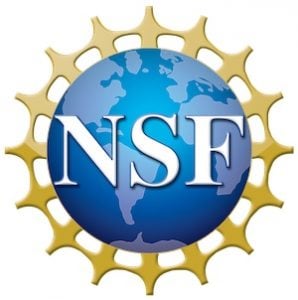Two Michigan Tech graduate students, Tessa Steenwinkel and Tyler LeMahieu, have been awarded National Science Foundation (NSF) Graduate Research Fellowships, and one undergraduate student, Jenna Brewer, has been given an honorable mention.
The oldest STEM-related fellowship program in the United States, the NSF Graduate Research Fellowship Program (GRFP) is a prestigious award that recognizes exceptional graduate students in science, technology, engineering and mathematics (STEM) disciplines early in their career and supports them through graduate education. NSF-GRFP fellows are an exceptional group; 42 fellows have become Nobel Laureates and about 450 fellows are members of the National Academy of Sciences.
The fellowship provides three years of financial support, including a $34,000 stipend for each fellow and a $12,000 cost-of-education allowance for the fellow’s institution. Besides financial support for fellows, the GRFP provides opportunities for research in national laboratories and international research.
The Graduate School is proud of these students for their outstanding scholarship. These awards highlight the quality of students at Michigan Tech, the innovative work they have accomplished, the potential for leadership and impact in science and engineering that the country recognizes in these students and the incredible role that faculty play in students’ academic success.
Tyler LeMahieu
LeMahieu is an environmental engineering MS student under advisor Cory McDonald. LeMahieu’s proposal was titled, “Understanding Wild Rice Site Suitability in a Changing Climate.”
LeMahieu writes: “I plan to dedicate my career to bridging gaps between the scientific body and land managers. I would like to manage public and rural lands for the farmer, the logger and the hunter while managing those same lands for improved water and ecological health into perpetuity. Because fundamentally, rural land managers have the same goal in mind as those studying the environment — a useful, productive and sound ecosystem which will support and be supported by the next generation. That common ground is not always evident to both parties, but I am equipped to act as an intermediary with a foot in both worlds.”
By the Graduate School.
